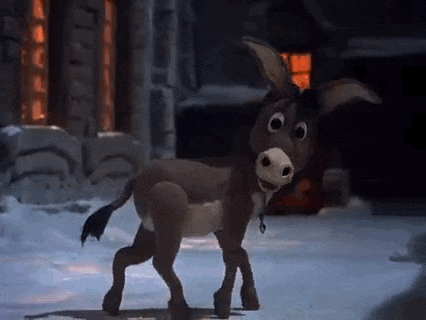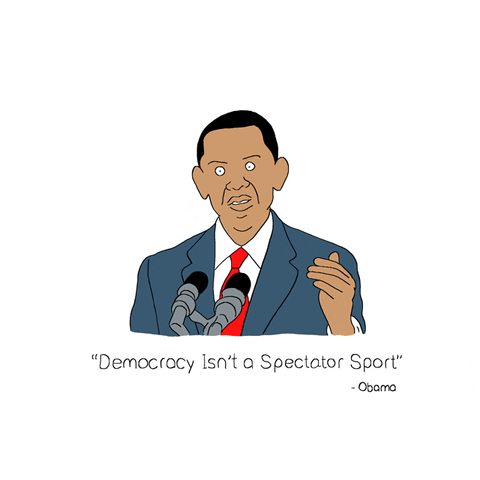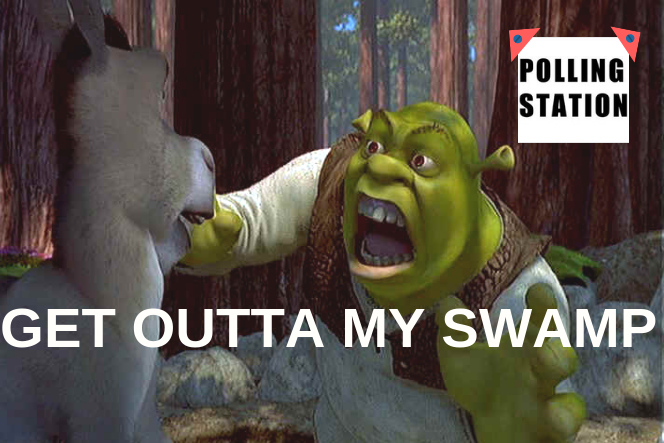The NSW state election is coming up this Saturday, so if you’re on the electoral roll you will have to cast a ballot.
This will be the first time for some young people in Australia, however for the rest of us, it’s a tedious task that we’ve done before.
Voting is actually a privilege and an important part of democracy that we shouldn’t take for granted. A lot of people around the world don’t possess this privilege.
A good tip: if you’re going to do it, you need to do it right.
Something that comes up a lot during election time is donkey voting or informal voting. Especially in the social media age, we’re seeing people posting images of their ballots as a form of amusement. So, what is donkey voting and informal voting?
A lot of people confuse informal voting with donkey voting. Informal voting occurs when a person leaves their ballot paper blank or fills it out incorrectly. This can include drawing images on the ballot; a crowd favourite is drawing male appendages on the voting ballot in protest (casual reminder: this isn’t practising democracy).

Donkey voting is where a person numbers each box in the order that the candidates appear, and it actually counts in the overall tally.
A person can number the candidates from top to bottom, or bottom to top, as a means of protest voting or because they simply don’t care about the election. Conversely, top to bottom voting could also genuinely represent a person’s political choices.
A lot of political parties actually take advantage of the “top to bottom” approach, and intentionally put forward candidates who would rank well if the ballot is listed alphabetically.
Donkey voting, let us repeat, is still counted in the overall voting tally. It’s still preferential and isn’t counted as a protest because you are still filling out the numbers in a particular order, and following the technical rules of voting.
If you’re taking the time to fill out numbers in each box, at least take some consideration into what name you’re putting the number next to.
Donkey voting jeopardises the process of democracy. The whole process of voting is to empower us and to ensure that we have a say in who represents our beliefs and interests in parliament.

When you donkey vote you’re undermining the preferential process. We’re given the opportunity to vote, and have a voice in who governs our country, should we not be taking it seriously?
A lot of people informally vote or donkey vote as a way of sending a message. It’s thought of as a form of protest, but let us tell you it’s really not the most productive form of protest. Scribbling an angry message or drawing lewd pictures on the ballot paper might feel like a form of protest, we promise you it achieves absolutely nothing.
The government doesn’t read your ballot paper, and although it might feel good in the moment to let out all your rage about Gladys and some of her questionable policies, the only people seeing it are the nice Australian Electoral Commission employees who are counting the votes.
Charlie Pickering stated in The Age:
“You may be protesting against the two-party system or you may be protesting against the price of peas. Both are possible, as is drawing the conclusion that you weren’t making a protest at all and simply didn’t understand how to fill out a ballot. Either way, voting informal is a terrible way to send a message.”
If there’s a party you despise, you’re far better off voting them as your last choice than wasting your ballot paper on a protest that will never be seen.

Informally voting is essentially throwing out your vote, and although this once again seems like a form of protest or showing you just don’t care, it still has an impact on the election. It gives weight to every other vote cast in the electorate.
Our votes are valuable, we’re privileged to have a voice in who sits in the parliament and creates our policies. For the other 364 days of the year we feel like the government doesn’t listen to our voices or beliefs, so why not at least use the one opportunity presented to you to choose who voices your opinions?
Around the world, thousands of people are fighting for the right of democracy and to have a voice in their country, and so here in Australia, we are privileged to have that choice.
This weekend, think about who you’re going to vote for and appreciate the privilege you have been given in this democratic country. Take the responsibility of voting seriously and use the opportunity to choose your leaders wisely.

